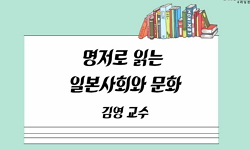‘옷이 날개다’는 말은 자기 자신을 더 아름답게 추구하려는 본능에서 나오는 것으로, 문화 표현의 일종이라고 할 수 있다. 중국 봉건사회의 조정에서 관복의 디자인, 색깔, 옷감 재질, 장...
http://chineseinput.net/에서 pinyin(병음)방식으로 중국어를 변환할 수 있습니다.
변환된 중국어를 복사하여 사용하시면 됩니다.
- 中文 을 입력하시려면 zhongwen을 입력하시고 space를누르시면됩니다.
- 北京 을 입력하시려면 beijing을 입력하시고 space를 누르시면 됩니다.
부가정보
국문 초록 (Abstract)
‘옷이 날개다’는 말은 자기 자신을 더 아름답게 추구하려는 본능에서 나오는 것으로, 문화 표현의 일종이라고 할 수 있다. 중국 봉건사회의 조정에서 관복의 디자인, 색깔, 옷감 재질, 장식무늬에 대해서 엄격한 규정이 있었는데, 이는 지위에 대한 사회의 상징이었다. 현대사회 에서 옷차림은 사회지위를 나타내기도 하고, 특정한 제복 역시 일정한 직업신분을 나타내기도 한다. 이러한 복식문화에서 옷차림을 다음과 같이 구분할 수 있다. 첫째, 신분, 종교에 따른 옷차림. 둘째, 지역적 특색에 따른 옷차림. 셋째, 사회 활동에 따른 적절한 옷차림. 넷째, 예술과 기타 활동에 관한 옷차림. 언어표현에서 ‘衣’가 의식주 중 첫 번째로 꼽히는 것은, 옷이 우리 삶에서 가장 필요하다는 것을 표현한 것이다. 사회가 발전하고 문명의 발달로 의복은 몸을 가리고 추위와 더위를 해결 하는 물질적인 기능 이외에, 아름다움과 예절, 계급지위 등 문명의 표지로 점점 발전하여 하나 의 문화적 계승물이 되었다. 고대 중국의 복식은 매우 복잡한 등급과 계급성으로 과거 봉건적 예의를 보여주는 형식 중의 하나가 되었다. 이러한 복식과 관련하여 표현되는 어휘들은 깊은 문화적 의미를 가지고 있는 것을 볼 수 있는데, 이러한 복식과 관련된 어휘의 파악은 중국 문화의 일면을 이해하는데도 도움이 될 수 있으리라 보며 이를 위해 본 연구에서는 이러한 복식과 관련된 한자와 관련하여 나타난 어휘 를 중심으로 의미를 살펴보는데 의의를 두고자 한다.
다국어 초록 (Multilingual Abstract)
The proverb of "fine clothes make the man" is one of the cultural expressions, prompted by natural instinct of human being who always wants to pursue beauty more than ever. Royal court in China at the feudal system had strict regulations governing the...
The proverb of "fine clothes make the man" is one of the cultural expressions, prompted by natural instinct of human being who always wants to pursue beauty more than ever. Royal court in China at the feudal system had strict regulations governing the official attire about design, color, quality of clothing materials, patterns in fabric and so on. This idea of regulations was caused by the thoughts regarding clothing as the symbol of social positions. Clothing in modern times also shows people's social positions. Certain uniforms also refer to specific vocations. The styles of Clothing usually differentiated from each other due to following factors. At first, Status and Religion makes Clothing different. Secondly, regional characteristics influence the way of clothing. Thirdly, social activities are also one of the factors that cause people to dress in a suitable form. fourthly, Behaviors in certain occupations such as artists and musicians make different in people's dressing ways. Clothing is one of the most necessary parts in life. Since society and civilization developed, clothing was considered to be one of cultural heritage functioning the standard of civilization besides the protection of body. Clothing in china at ancient times performed a sort of important role to present feudal manners and politeness due to a complicate status system. This paper aims at considering the meaning of Chinese words and characters related with clothing, because these words include the cultural aspects and its meaning. Therefore, classifying and understanding their meaning help the cultural studies to be more fluent.
목차 (Table of Contents)
- 국문요약
- 1. 서론
- 2. 머리에 관련된 것
- 1) 冠
- 2) 帻
- 국문요약
- 1. 서론
- 2. 머리에 관련된 것
- 1) 冠
- 2) 帻
- 3) 帽
- 4) 여성용 머리 장신구
- 3. 의복
- 4. 장신구
- 5. 결론
- 참고문헌
참고문헌 (Reference)
1 成百曉譯註, "論語集註" 傳統文化硏究會 2005
2 姜寔鎭, "進明中韓辭典" 進明出版社 2000
3 辭海編輯委員會, "辭海" 上海辭書出版社 1994
4 "說文解字 現代版" 社會科學文獻出版社 2006
5 倪文杰, "現代漢語辭海" 人民中國出版社 1994
6 中国社会科学院语言研究所词典编辑室, "现代汉语词典 第五版" 商务印书馆 2005
7 王國安, "漢語詞語的文化透視" 漢語大詞典出版社 2003
8 華梅主, "服饰文化全览(上卷)" 天津古籍出版社 2007
9 楊合鳴, "中華成語辭海" 云南人民出版社 2008
10 王輝.建, "中國文化知識精華" 湖北人民出版社 2007
1 成百曉譯註, "論語集註" 傳統文化硏究會 2005
2 姜寔鎭, "進明中韓辭典" 進明出版社 2000
3 辭海編輯委員會, "辭海" 上海辭書出版社 1994
4 "說文解字 現代版" 社會科學文獻出版社 2006
5 倪文杰, "現代漢語辭海" 人民中國出版社 1994
6 中国社会科学院语言研究所词典编辑室, "现代汉语词典 第五版" 商务印书馆 2005
7 王國安, "漢語詞語的文化透視" 漢語大詞典出版社 2003
8 華梅主, "服饰文化全览(上卷)" 天津古籍出版社 2007
9 楊合鳴, "中華成語辭海" 云南人民出版社 2008
10 王輝.建, "中國文化知識精華" 湖北人民出版社 2007
11 許嘉璐, "中國古代衣食住行" 北京出版社 2011
동일학술지(권/호) 다른 논문
-
- 한중인문학회
- 서옥란
- 2012
- KCI등재
-
- 한중인문학회
- 김정우
- 2012
- KCI등재
-
- 한중인문학회
- 李學堂
- 2012
- KCI등재
-
- 한중인문학회
- 장춘매
- 2012
- KCI등재
분석정보
인용정보 인용지수 설명보기
학술지 이력
| 연월일 | 이력구분 | 이력상세 | 등재구분 |
|---|---|---|---|
| 2027 | 평가예정 | 재인증평가 신청대상 (재인증) | |
| 2021-01-01 | 평가 | 등재학술지 유지 (재인증) |  |
| 2018-01-01 | 평가 | 등재학술지 유지 (등재유지) |  |
| 2015-01-01 | 평가 | 등재학술지 유지 (등재유지) |  |
| 2011-01-01 | 평가 | 등재학술지 유지 (등재유지) |  |
| 2009-01-01 | 평가 | 등재학술지 유지 (등재유지) |  |
| 2004-01-01 | 평가 | 등재학술지 선정 (등재후보2차) |  |
| 2003-01-01 | 평가 | 등재후보 1차 PASS (등재후보1차) |  |
| 2002-01-01 | 평가 | 등재후보 1차 FAIL (등재후보1차) |  |
| 1999-07-01 | 평가 | 등재후보학술지 선정 (신규평가) |  |
학술지 인용정보
| 기준연도 | WOS-KCI 통합IF(2년) | KCIF(2년) | KCIF(3년) |
|---|---|---|---|
| 2016 | 0.46 | 0.46 | 0.46 |
| KCIF(4년) | KCIF(5년) | 중심성지수(3년) | 즉시성지수 |
| 0.45 | 0.41 | 0.808 | 0.05 |




 eArticle
eArticle







